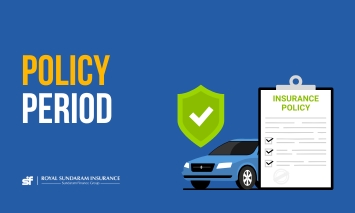Why You Should Not Exaggerate Car Damages?
Mar 25, 2025 • 3 Min Read
By exaggerating damages on your car insurance claim, you may get a quick fix to cover your repair costs or secure a higher reimbursement. But overall, the risks far exceed the list of benefits. The insurance policy mechanism works on honesty and integrity, and engaging in such practices can sometimes have serious implications. Car insurance fraud has serious consequences, and these can range from your car insurance denied claims to legal issues. In this post, we will see why you should not inflate your damages, and what consequences they can pose. To help avoid the dangers of fraudulent activity, you must also practice transparency and honesty in your insurance relationships.
Car Insurance Fraud
If you own an automobile, you should understand the basics of car insurance and its associated risks of fraud claim practices. Insurance fraud can have severe implications from simply refusals to payout to severe legal action. When you exaggerate damages, you put yourself at risk of getting framed for these charges. Insurance companies are laborious in going to the depths of a claim and detecting any fraudulent claim. Once detected, you may face severe consequences, either financial or legal.
Risks Associated with Car Insurance Fraud
When you commit insurance fraud, you may expose yourself to a wide range of dangers. These dangers can have long-term implications. To begin, inflating damages can, first of all, result in refused claims. This leaves you without any financial resources that you might require to carry out your repairs. Also, insurance companies very closely monitor all claims, and if fraud is detected, your claim gets refused.
It is important to understand that insurance fraud is a serious crime and is punishable by the law. Your punishment can depend on the seriousness of the fraud. The penalties can vary from facing criminal charges in the form of fines, or even imprisonment.
In addition to all legal consequences, when you commit insurance fraud, you might also attract long-term implications for your insurance coverage. Once identified as a fraudster, insurance companies may refuse to cover you with coverage shortly.
Denied Claims: When you submit an overstated claim to your insurance carrier, it will primarily result in the denial of your claim. That eventually, leaves you to shoulder the financial burden all by yourself even if the losses are genuine. Also, a denied claim can have long-term consequences. These can include lesser coverage in the future. Not only does it bring a loss for your current claim, but you may also face coverage limitations for your future claims. Thus, by inflating damages you not only put yourself at risk for immediate financial implications but also jeopardize your chances to obtain proper coverage when you really need it in the future.
Legal Trouble: As a policyholder when you engage in fraudulent activities including misrepresenting losses or submitting some wrong information, you may attract legal trouble. Unethical insurance practices are not only unlawful but a clear violation of the law. If caught, you could face serious legal consequences including hefty fines or even imprisonment as an extreme punishment. You must keep in mind that the risk of legal difficulties should serve as a strong deterrent from committing any insurance fraud. Do keep in mind that the short-term benefits of fraud are not worth the long-term costs of facing legal trouble.
Higher Premiums: Insurance fraud attracts a financial burden on all policyholders. When people cheat insurers by exaggerating their damages, everyone ends up paying a higher premium. It isn’t wrong to say that participating in fraudulent activity is not only oneself but also a majority of other consumers who rely on insurance payouts and clean transactions. So, by intentionally boosting your claim amounts, policyholders end up contributing to an overall growth in insurance rates, which ultimately brings in a disadvantage for yourself and all other policyholders.
Loss of Trust: We have overemphasised the statement that the insurance industry is established on mutual trust. However, at times when dishonesty enters this, in the form of lies and false information, it not only breaks trust but also weakens the overall ’integrity of the ecosystem. When a policyholder is found lying about their damages, it becomes difficult to restore the faith of the insurer and makes it difficult to obtain inexpensive coverage shortly.
Common Types of Car Insurance Fraud
Exaggerating your damage is simply one example of insurance fraud. Other prevalent forms include incidents such as staged accidents, fake injury claims, and providing misleading information on your insurance applications. These are all unethical and remain prohibited, and can attract severe punishments. It is critical to understand that attempting to deceive your insurance provider might have long-term implications, limiting your capacity to receive coverage shortly.
Reporting Suspected Fraud
If an insurance fraud comes to your attention, you should report it. If you are unaware of how to report any questionable conduct, simply begin by contacting your insurance company's fraud department or the designated authorities. By reporting fraud, you contribute to the overall integrity of the insurance ecosystem and help keep others from suffering the repercussions of dishonest behavior.
Conclusion
To summarise, inflating your damages on a car insurance claim is not at all worth the risk to gamble on the legal constraints. The general car insurance claims fraud can result in getting your claims denied, added with legal consequences while ruining your reputation. It is also critical to be honest while dealing with any insurance issues, especially basic vehicle insurance claims. Do remember that the dangers of deception outweigh any potential rewards. You can protect yourself and your hard-earned money by avoiding dishonest methods and by simply following the principles of transparency and honesty across all of your insurance transactions.



Discover the perfect insurance plan for you!
Get your free quote now!
Get StartedBy Clicking on Get Started, You agree to our Terms and Conditions and override DNC/NDNC registration.
More like this
View more





.png)